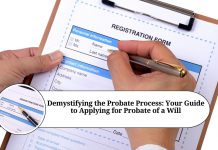When it comes to paying income tax, every penny counts, and that’s where Section 87A comes into play. It is a rebate available to taxpayers whose income falls below a certain threshold. This blog aims to provide a comprehensive understanding of Section 87A income tax, including who is eligible and how to calculate the rebate.
Section 87A Income Tax: Eligibility Criteria
Section 87A applies to individual taxpayers who are residents of India and whose total income does not exceed Rs. 5 lacks per annum. However, it is essential to note that this rebate is not available to Hindu Undivided Families (HUFs), Association of Persons (AoPs), or Body of Individuals (BoIs). Additionally, the rebate is only available to taxpayers who have not availed of deductions under Section 80C to 80U of the Income Tax Act.
Calculation of Rebate Under Section 87A
The rebate amount under Section 87A is calculated as follows:
If the total income is up to Rs. 3.5 lakh, the rebate amount is Rs. 2,500.
If the total income is between Rs. 3.5 lakh and Rs. 5 lacks, the rebate amount is 5% of the total income or Rs. 12,500, whichever is lower.
For instance, if your total income is Rs. 4.5 lakh, the rebate amount will be calculated as 5% of the total income, which amounts to Rs. 2,250. Therefore, the rebate amount will be Rs. 2,250 and not Rs. 12,500.
The impact of Section 87A on Tax Liability
The rebate amount under Section 87A reduces the total tax liability of an individual. For instance, if your total income is Rs. 4 lacks, your tax liability before the rebate will be Rs. 10,000. However, after availing of the rebate of Rs. 2,500, your tax liability will reduce to Rs. 7,500.
Eligibility Criteria
As mentioned earlier, only individual taxpayers who are residents of India and whose total income does not exceed Rs. 5 lacks per annum are eligible for the rebate under Section 87A. It is crucial to note that the total income includes income from all sources, such as salary, business, profession, or capital gains.
In case an individual has multiple sources of income, it is important to calculate the total income from all the sources to determine eligibility for the rebate. For instance, if an individual has a salary income of Rs. 3 lacks and a capital gain of Rs. 2.5 lakh, the total income will be Rs. 5.5 lakh and the individual will not be eligible for the rebate under Section 87A.
Calculation of Rebate
The calculation of the rebate under Section 87A is based on the total income of an individual. If the total income is less than or equal to Rs. 3.5 lakh, the rebate amount is Rs. 2,500. If the total income is between Rs. 3.5 lakh and Rs. 5 lacks, the rebate amount is 5% of the total income or Rs. 12,500, whichever is lower.
For example, suppose an individual has a total income of Rs. 4 lacks. In that case, the rebate amount will be calculated as 5% of the total income, which is Rs. 20,000. However, since the maximum rebate amount allowed under Section 87A is Rs. 12,500, the individual will only receive a rebate of Rs. 2,500.
Impact on Tax Liability
The rebate under Section 87A helps in reducing the tax liability of an individual. Suppose an individual’s total income is Rs. 4 lakh and the tax liability before the rebate is Rs. 10,000. In that case, the individual can claim a rebate of Rs. 2,500 under Section 87A, and the tax liability will reduce to Rs. 7,500.
It is essential to note that the rebate under Section 87A applies only to the tax liability and not to the surcharge or education cess. The surcharge and education cess are calculated on the tax liability before applying the rebate.
Other Useful Links:
- Section 194IB of Income Tax Act
- Section 194J of Income Tax Act
- Section 194K of Income Tax Act
- Section 194N of Income Tax Act
- Section 194O of Income Tax Act
- Section 195 of Income Tax Act
Conclusion
In conclusion, Section 87A of the Income Tax Act is a beneficial provision for individual taxpayers whose income falls below the threshold limit. By claiming the rebate under Section 87A, taxpayers can reduce their tax liability and save money. However, it is important to understand the eligibility criteria and the calculation of the rebate to make informed decisions about tax planning. It is advisable to consult a tax professional to ensure compliance with the Income Tax Act and to maximize the benefits of the rebate.
Frequently Ask Question
Q1. Who is eligible for a rebate under Section 87A?
Individual taxpayers who are residents of India and whose total income does not exceed Rs. 5 lacks per annum are eligible for a rebate under Section 87A.
Q2. Can Hindu Undivided Families (HUFs) or Association of Persons (AoPs) claim a rebate under Section 87A?
No, only individual taxpayers who are residents of India are eligible for a rebate under Section 87A. HUFs and AoPs are not eligible for this rebate.
Q3. Is the rebate amount under Section 87A subject to change?
Yes, the rebate amount under Section 87A can be changed in the Union Budget. It is important to stay updated with the latest provisions to make informed decisions about tax planning.
Q4. Can individuals claim deductions under Section 80C to 80U and still claim a rebate under Section 87A?
No, an individual who has claimed deductions under Section 80C to 80U cannot claim a rebate under Section 87A.
Q5. How is the rebate amount under Section 87A calculated?
The rebate amount under Section 87A is calculated based on an individual’s total income. If the total income is less than or equal to Rs. 3.5 lakh, the rebate amount is Rs. 2,500. If the total income is between Rs. 3.5 lakh and Rs. 5 lacks, the rebate amount is 5% of the total income or Rs. 12,500, whichever is lower.
Q6. Can the rebate under Section 87A be claimed by senior citizens?
Yes, senior citizens who are residents of India and whose total income does not exceed Rs. 5 lacks per annum are eligible for the rebate under Section 87A.
Q7. Is the rebate under Section 87A applicable to the surcharge and education cess?
No, the rebate under Section 87A applies only to the tax liability and not to the surcharge or education cess. The surcharge and education cess are calculated on the tax liability before applying the rebate.
Q8. Is the rebate under Section 87A applicable to non-resident Indians (NRIs)?
No, the rebate under Section 87A applies only to resident individuals. NRIs are not eligible for this rebate.
Q9. How can I claim a rebate under Section 87A?
Individuals can claim the rebate under Section 87A by filing their income tax return and mentioning the rebate amount in the tax return. It is advisable to consult a tax professional to ensure compliance with the Income Tax Act.
Q10. Can I claim the rebate under Section 87A for multiple financial years?
Yes, the rebate under Section 87A is available for each financial year. However, eligibility criteria and rebate amount may differ for each financial year. It is important to stay updated with the latest provisions to make informed decisions about tax planning.































